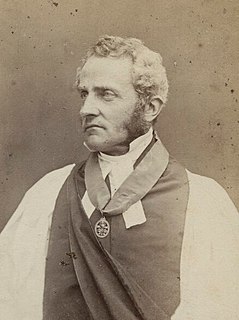A Quote by John I. Jenkins
We are called to serve the common good by engaging with political and other institutions, even in our pluralistic society. We bring to that effort Christ's command to love and the grace that helps us live that love.
Related Quotes
Love is costly. T forgive in love costs us our sense of justice. To serve in love costs us time. To share in love costs us money. Every act of love costs us in some way, just as it cost God to love us. But we are to live a life of love just as Christ loves us and gave Himself for us at great cost to Himself.
This is the amazing story of God’s grace. God saves us by His grace and transforms us more and more into the likeness of His Son by His grace. In all our trials and afflictions, He sustains and strengthens us by His grace. He calls us by grace to perform our own unique function within the Body of Christ. Then, again by grace, He gives to each of us the spiritual gifts necessary to fulfill our calling. As we serve Him, He makes that service acceptable to Himself by grace, and then rewards us a hundredfold by grace.
Let us meditate until we perceive the Infinite Christ reigning in our own hearts. Let us learn to love those who love us not; and to forgive those who do ill against us. Let us break all our mental boundaries of color, creed, and nationality, and receive all - even our inanimate and animal brothers - in the endless, all embracing arms of our Christ Consciousness. This will be a true and fitting celebration of the coming of Jesus Christ to this earth.
That is a true sentiment which makes us feel that we do not love our country less, but more, because we have laid up in our minds the knowledge of other lands and other institutions and other races, and have had enkindled afresh within us the instinct of a common humanity, and of the universal beneficence of the Creator.
In so far as divine love beautifies our souls. And makes us pleasing to His divine Majesty, it is called grace; in so far as it gives us strength to do good, it is called charity; but when it reaches such a degree of perfection, that it makes us not only do the good, but do so carefully, frequently and readily, then it is called devotion.
I know that God loves us. He allows us to exercise our moral agency even when we misuse it. He permits us to make our own decisions. Christ cannot help us if we do not trust Him; He cannot teach us if we do not serve Him. He will not force us to do what's right, but He will show us the way only when we decide to serve Him. Certainly, for us to serve in His kingdom, Christ requires that we experience a change of thought and attitude.
Many years ago I was driven to the conclusion that the two major causes of most emotional problems among evangelical Christians are these: the failure to understand, receive, and live into God's unconditional grace and forgiveness; and the failure to give out that unconditional love, forgiveness, and grace to other peopleWe read, we hear, we believe a good theology of grace. But that's not the way we live. The good news of the Gospel of grace has not penetrated the level of our emotions.
As long as we are on earth, the love that unites us will bring us suffering by our very contact with one another, because this love is the resetting of a body of broken bones. Even saints cannot live with saints on this earth without some anguish. There are two things which men can do about the pain of disunion with other men. They can love or they can hate.
We talk about social service, service to the people, service to humanity, service to others who are far away, helping to bring peace to the world - but often we forget that it is the very people around us that we must live for first of all. If you cannot serve your wife or husband or child or parent - how are you going to serve society? If you cannot make your own child happy, how do you expect to be able to make anyone else happy? If all our friends in the peace movement or of service communities of any kind do not love and help each other, whom can we love and help?
Those who surrender to the service of the poor through love of Christ, will live like the grains of wheat that dies. It only apparently dies. If it were not to die, it would remain a solitary grain. The harvest comes because of the grain that dies. We know that every effort to improve society, above all when society is so full of injustice and sin, is an effort that God blesses; that God wants; that God demands of us.
Whenever we think of Christ, we should recall the love that led Him to bestow on us so many graces and favors, and also the great love God showed in giving us in Christ a pledge of His love; for love calls for love in return. Let us strive to keep this always before our eyes and to rouse ourselves to love Him.
Our redemption through the suffering of Christ is that deeper love within us which not only frees us from slavery to sin, but also secures for us the true liberty of the children of God, in order that we might do all things out of love rather than out of fear - love for him that has shown us such grace that no greater can be found.
Romantic love is blind to everything except what is lovable and lovely, but Christ's love sees us with terrible clarity and sees us whole. Christ's love so wishes our joy that it is ruthless against everything in us that diminishes our joy. The worst sentence Love can pass is that we behold the suffering which Love has endured for our sake, and that is also our acquittal. The justice and mercy of the judge are ultimately one.




































